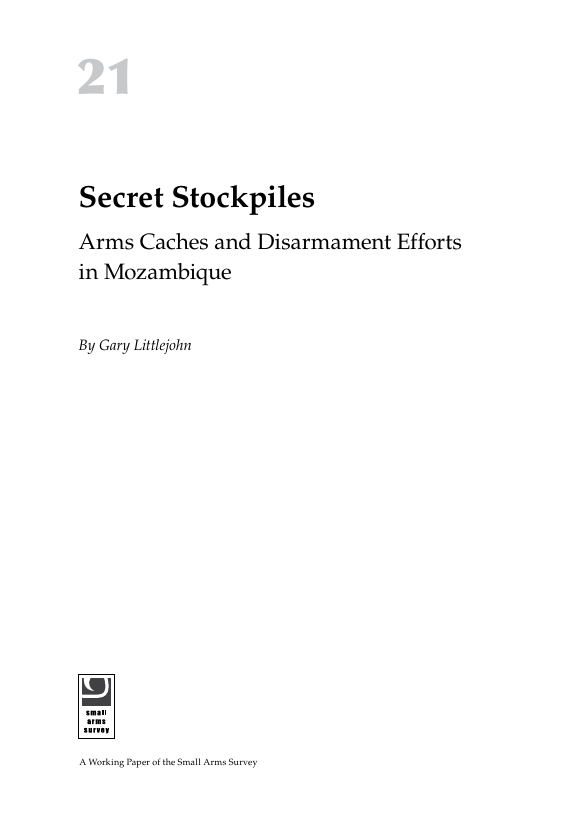
Secret Stockpiles: Arms Caches and Disarmament Efforts in Mozambique (Working Paper 21)
The General Peace Accord for Mozambique (GPA) in 1992 provided for the disarmament of Resistência Nacional Moçambicana (RENAMO—the Mozambican National Resistance) and the governing party, Frente de Libertação de Moçambique (FRELIMO—the Mozambique Liberation Front), and for the integration of reduced forces from both groups into a single national army.
The disarmament process that followed was fraught with difficulties, mainly because of mistrust between the two signatories. Despite various and repeated attempts, the process of arms collection was limited and there was considerable concern about hidden RENAMO stockpiles.
Within Mozambique it was feared that armed conflict would reignite if political differences persisted, with RENAMO periodically threatening to return to armed conflict. Such threats seemed credible because of RENAMO’s hidden arms caches. Eventually armed conflict broke out again in 2013 and continued into 2015, despite attempts by both parties and mediators to resolve the situation.
Although a return to full-scale civil war seemed unlikely, the conflict nevertheless bore serious economic consequences and threatened to disrupt democratic processes and hamper future economic stability.
Secret Stockpiles: Arms Caches and Disarmament Efforts in Mozambique reviews disarmament efforts overseen by a United Nations Operation in Mozambique (ONUMOZ) during 1992–94. It considers three subsequent arms-recovery programmes and describes the delicate nature of cooperation that took place between state and non-state agencies. The paper also assesses the implications of disarmament for Mozambique and the international community.
Available in ENGLISH